25 photos show Jimmy Carter's inspiring life, from humble beginnings to his role as the country's oldest living president
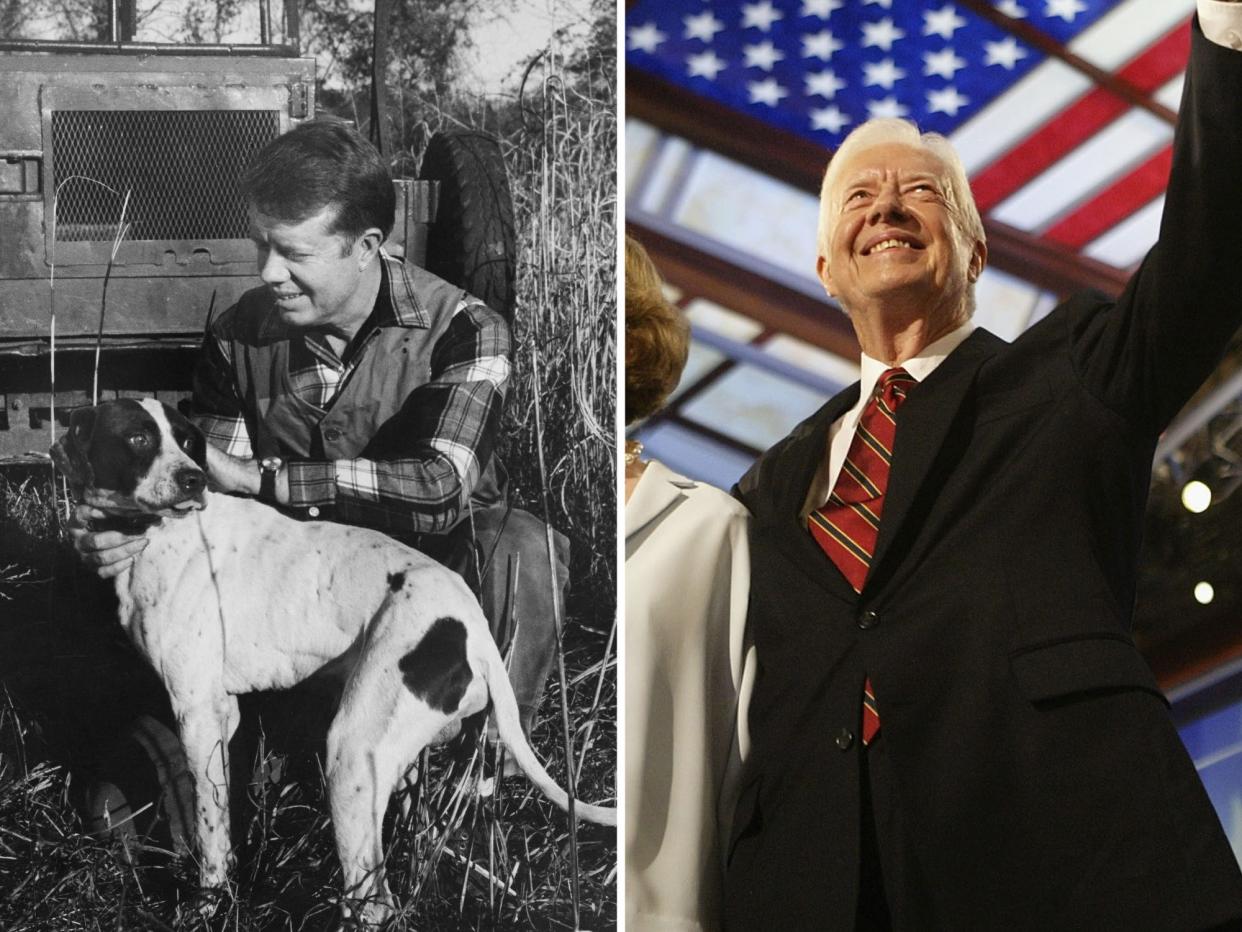
Jimmy Carter was born on October 1, 1924, in the farming community of Plains, Georgia.
Carter went on to serve in the US Navy and was sworn in as president in 1977.
After a 2015 cancer diagnosis, Carter, now 98, is receiving hospice care at home.
Jimmy Carter was born on October 1, 1924, in the small farming town of Plains, Georgia.
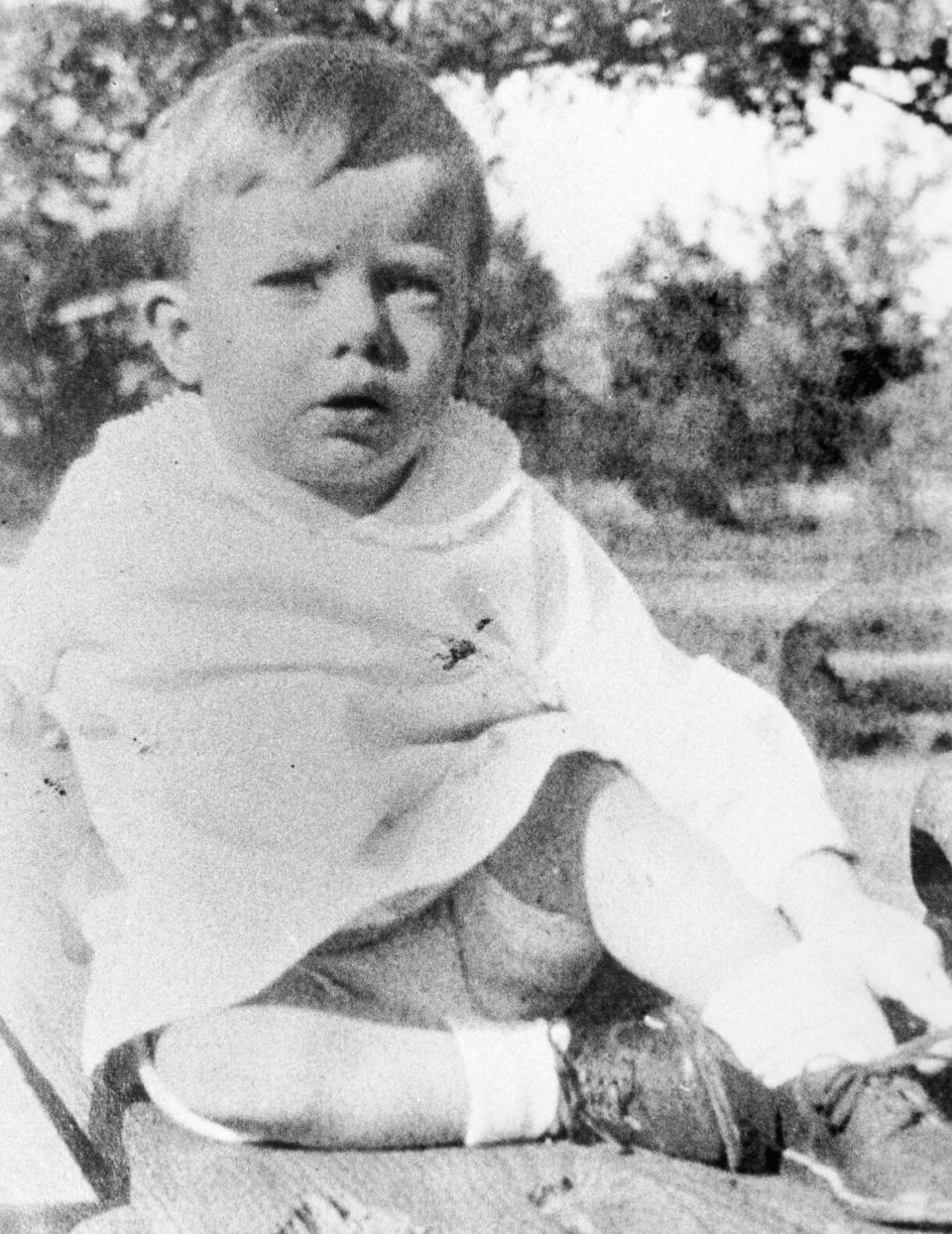
Carter grew up on his family's 360-acre peanut farm in the nearby community of Archery.
His father, James Earl Carter, Sr., was a farmer and businessman, while his mother, Lillian Gordy Carter, was a registered nurse, according to the Jimmy Carter Library.
The Carters were one of few landowning families in Archery.
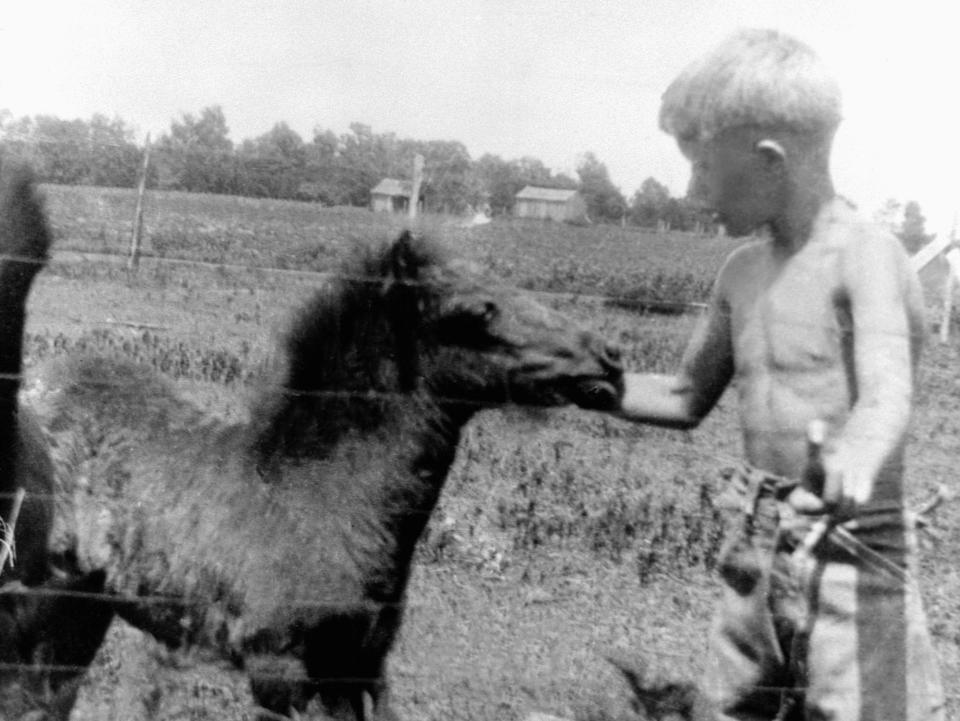
According to The New York Times, the Carters were also the only white family in town. The family, despite achieving status in a rural town with a population of only 200, still grew up in relative poverty.
Carter's family didn't have running water until he turned 11 and they didn't get electricity until three years later.
"The greatest day in my life was not being inaugurated president, [and] it wasn't even marrying Rosalynn — it was when they turned the electricity on," Carter said.
Carter received a bachelor's from the United States Naval Academy.
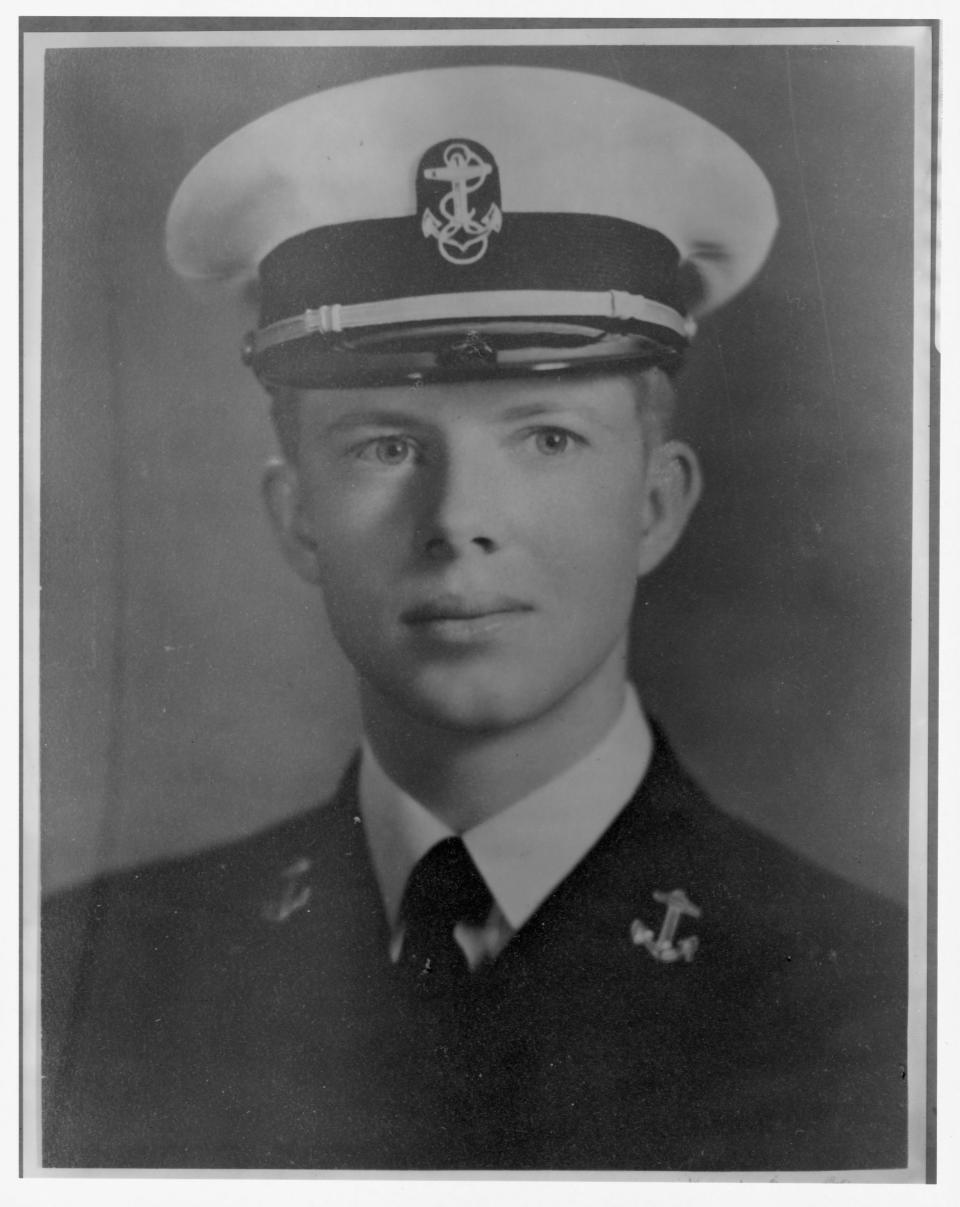
At the time, the Naval Academy did not offer specialized degrees, but Carter later did graduate work in nuclear physics at Union College in Schenectady, New York.
Jimmy Carter married Rosalynn Smith of Plains, Georgia, in 1946.
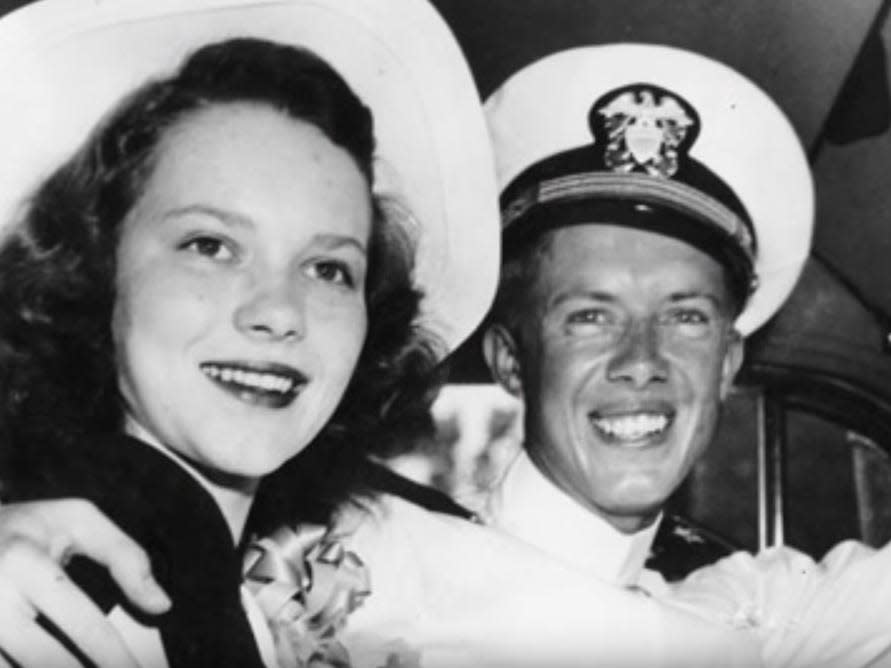
Though they distantly knew each other as children, they were formally introduced by a mutual friend while Carter was attending the US Naval Academy.
They were married on July 7, 1946, shortly after he had graduated from the academy.
Carter, now 98, and his wife Rosalynn, 95, hold the record for the longest-married presidential couple.
Carter went on to serve in the US Navy in both the Atlantic and Pacific fleets during World War II and the Korean War.
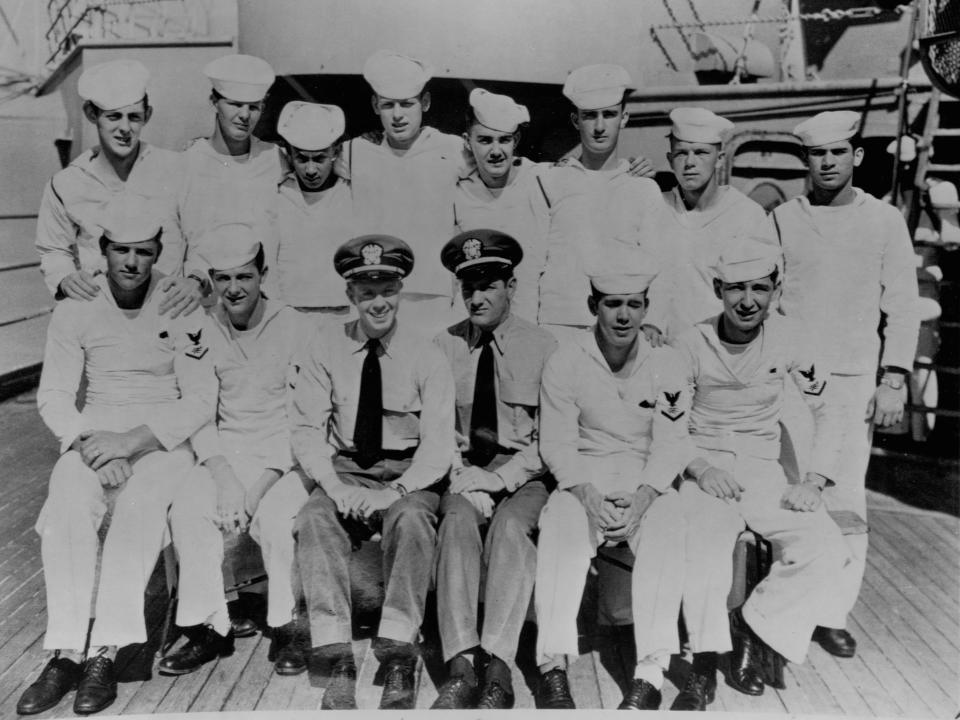
He rose to the rank of lieutenant officer and is one of 29 American presidents who have served in the armed forces.
He is pictured third from left in the front row.
When his father died in 1953, Carter resigned from the Navy and returned home to take over his family's peanut farm.
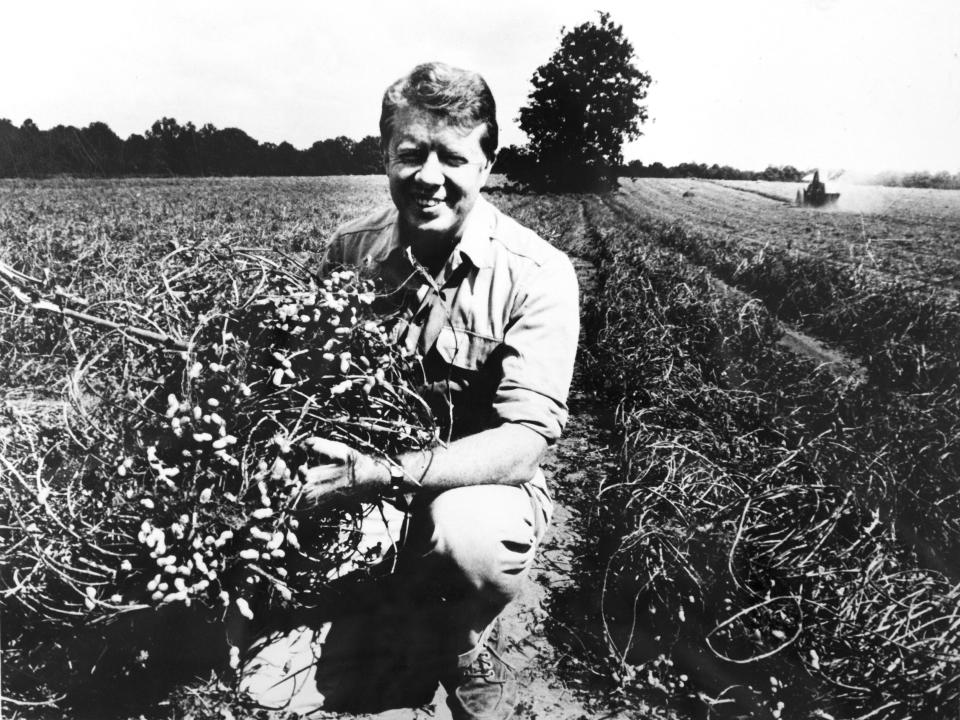
After the farm began to falter in the late 1940s, Earl Carter sold the family's farmhouse and surrounding land in 1949. moving the family to nearby Plains. However, after Jimmy Carter returned home and bought back the farm, the business became widely successful under Carter's leadership.
In addition to the peanut farm, Jimmy and Rosalynn Carter also operated Carter's Warehouse, a general-purpose seed-and-farm-supply company in Plains, Georgia.
The Carters had four children: Jack, born in 1947; James, born in 1950; Donnel, born in 1952; and Amy, born in 1967.
Carter soon became known as a leader in his community.
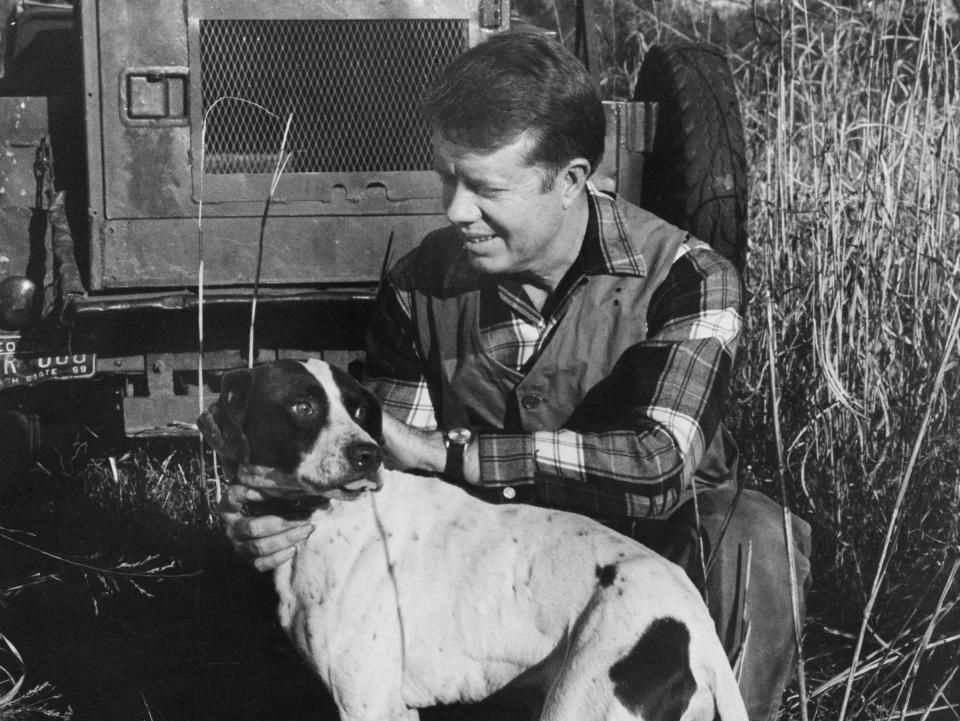
Carter served as chairman of the county school board and later became the first president of the Georgia Planning Association. In 1962, he was elected to the Georgia Senate. He attempted to run for governor in 1966 but was defeated.
Jimmy Carter became the governor of Georgia in 1971.
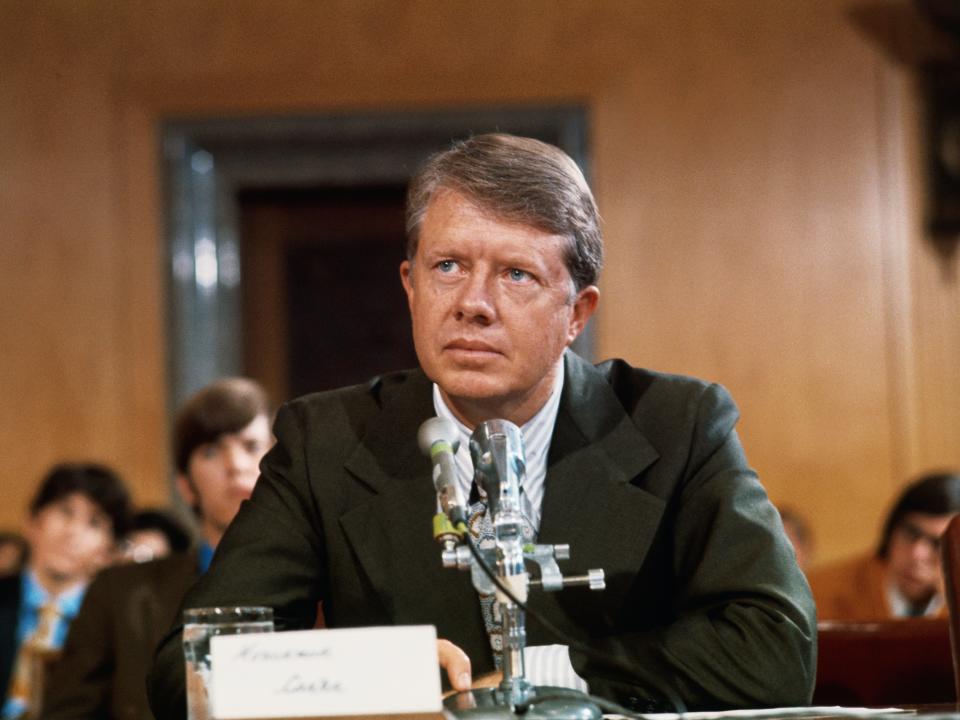
Carter served on multiple committees as governor and became the Democratic National Committee campaign chairman for the 1974 congressional and gubernatorial elections.
Carter announced his candidacy for the Democratic presidential nomination on December 12, 1974.
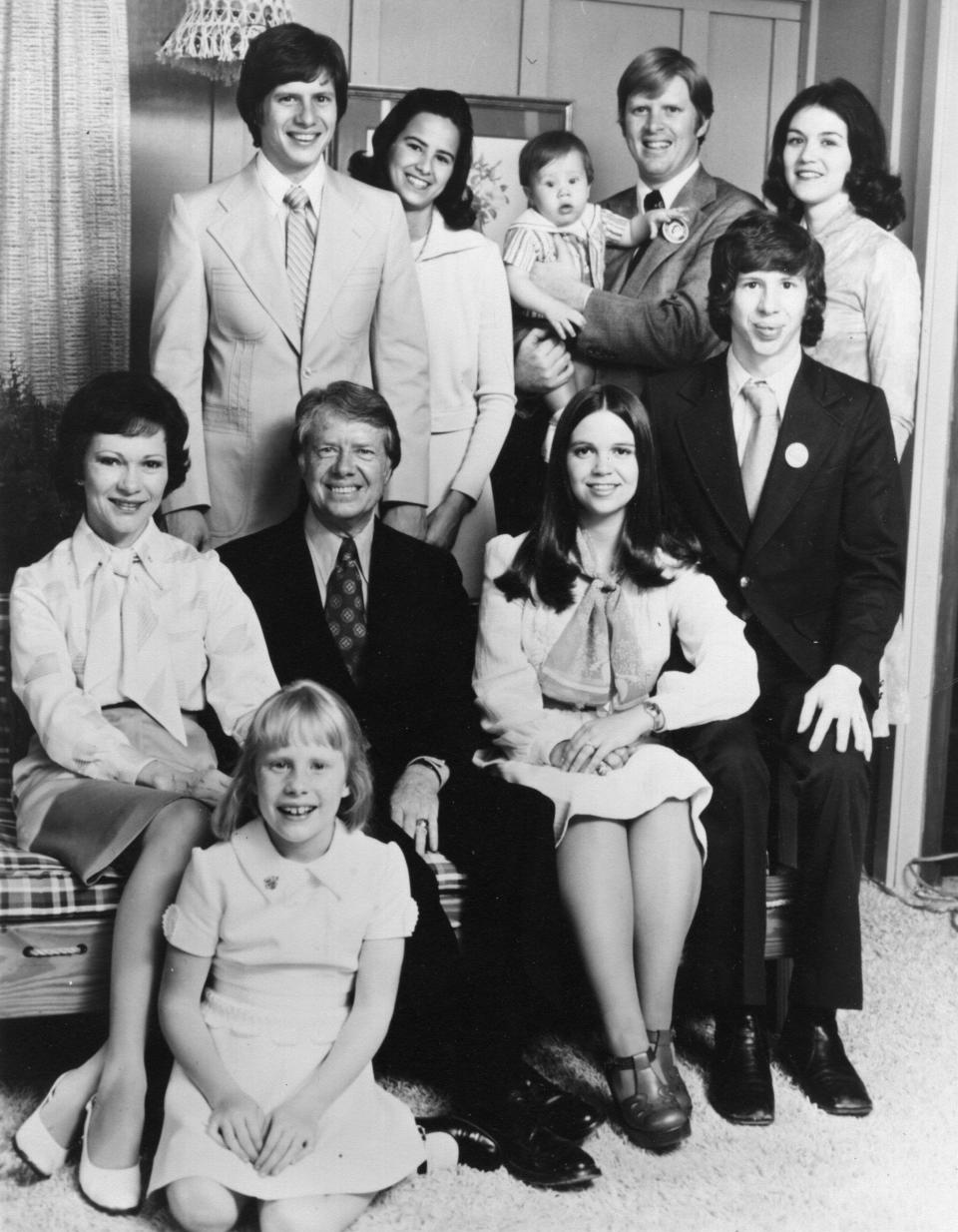
Carter, pictured with his family in 1976, won his party's nomination at the 1976 Democratic National Convention on the first ballot.
His role in the community fueled his desire to enter politics, but his work on the peanut farm became a symbol of his presidential campaign.
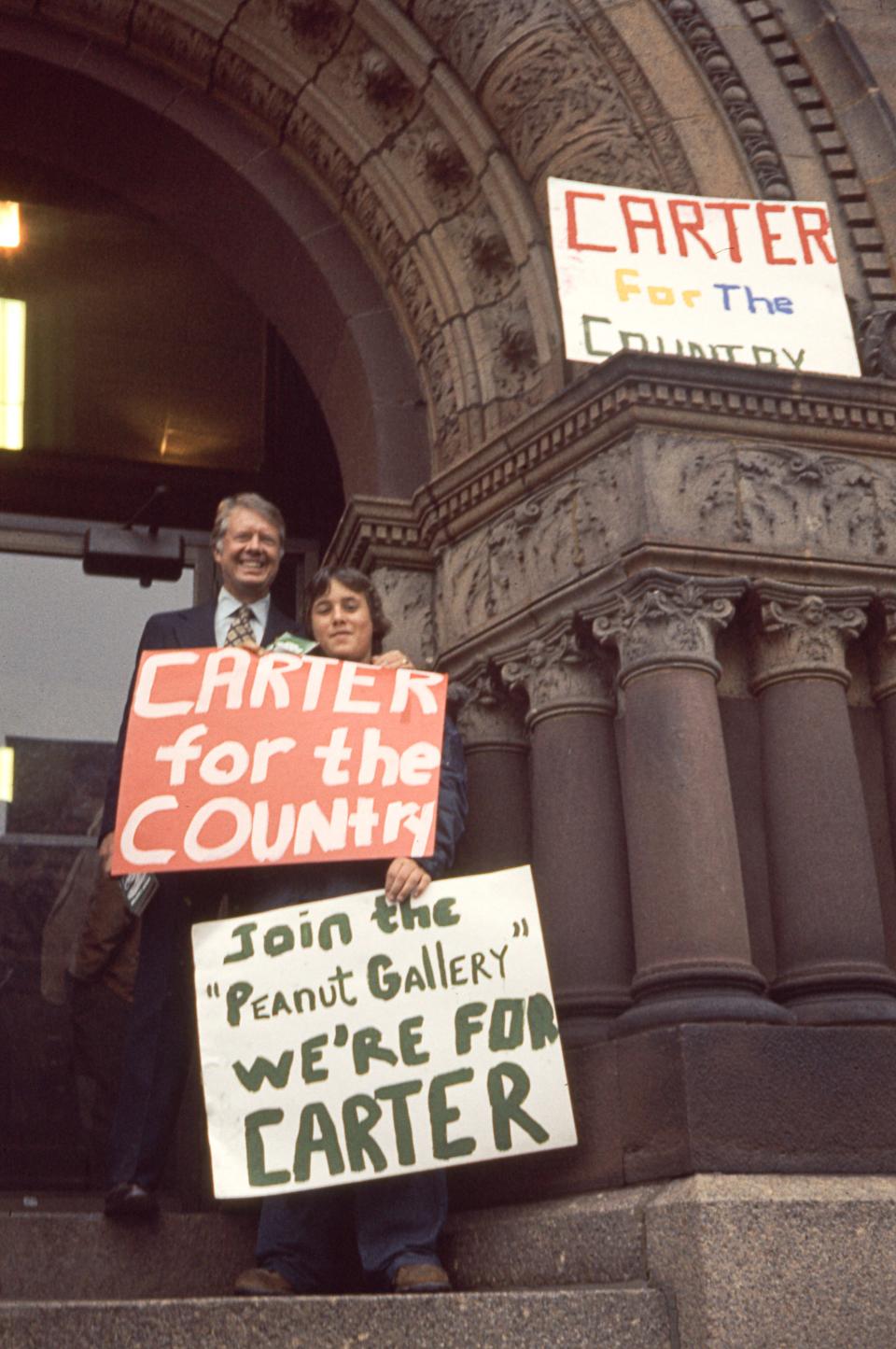
Given that Carter had never held a national office before announcing his candidacy for president, many American voters had never heard of the Georgia politician when he launched his campaign.
A Georgia newspaper even ran a front-page headline that read, "Jimmy Who Is Running For What!?" after Carter announced his candidacy.
However, a grassroots campaign team hailing from Plains, nicknamed "The Peanut Brigade," helped launch Carter as an outsider completely separated from the scandals of the previous Nixon administration.
His campaign slogans focused on Carter's image as an everyday American, choosing phrases like "America Needs Carter, A Man of the Soil" and "Jimmy Carter For All of Us."
Carter chose Walter Mondale, a United States senator from Minnesota, as his vice presidential running mate.
Jimmy Carter was elected to the presidency on November 2, 1976, defeating the incumbent president, Gerald Ford.
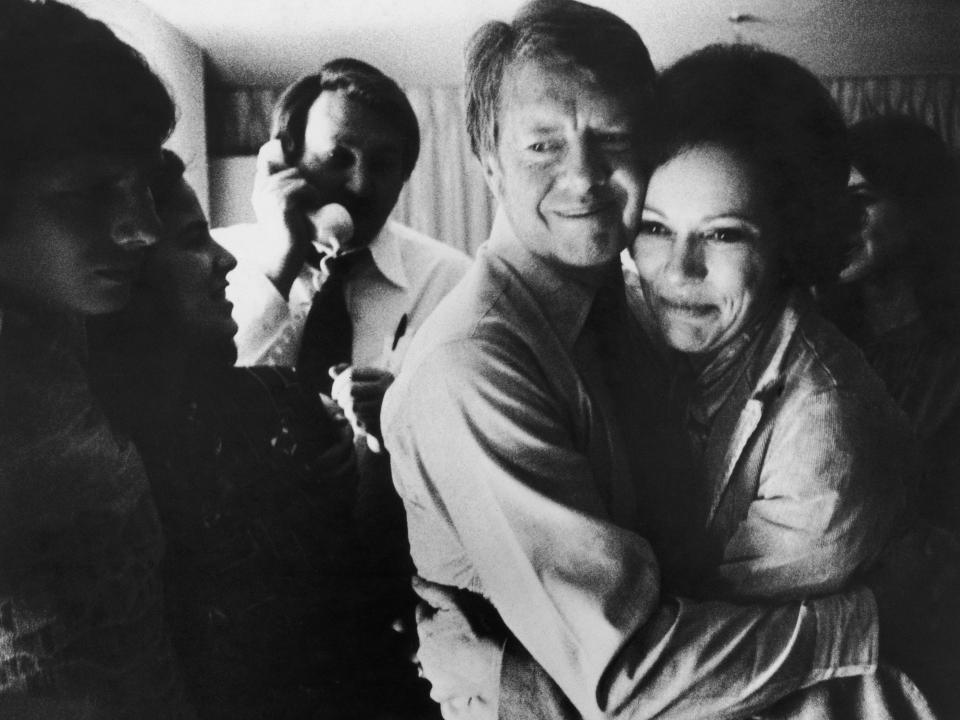
In 1973, Ford was appointed to the vice presidency by Richard Nixon and confirmed by Congress under provisions of the 25th Amendment after Vice President Spiro T. Agnew resigned. Less than a year later, in August 1974, Nixon himself resigned, and Ford became president.
He was not a popular president, largely due to the aftermath of the Watergate Scandal and the Vietnam War. He also awarded Nixon a full pardon shortly after assuming office, which proved to be a controversial decision.
Carter won with 297 electoral votes, a majority stemming from the Southern and Northern states, while Ford secured 240 votes.
In 1976, Jimmy and Rosalynn Carter were interviewed by Barbara Walters at their Georgia home prior to his inauguration.
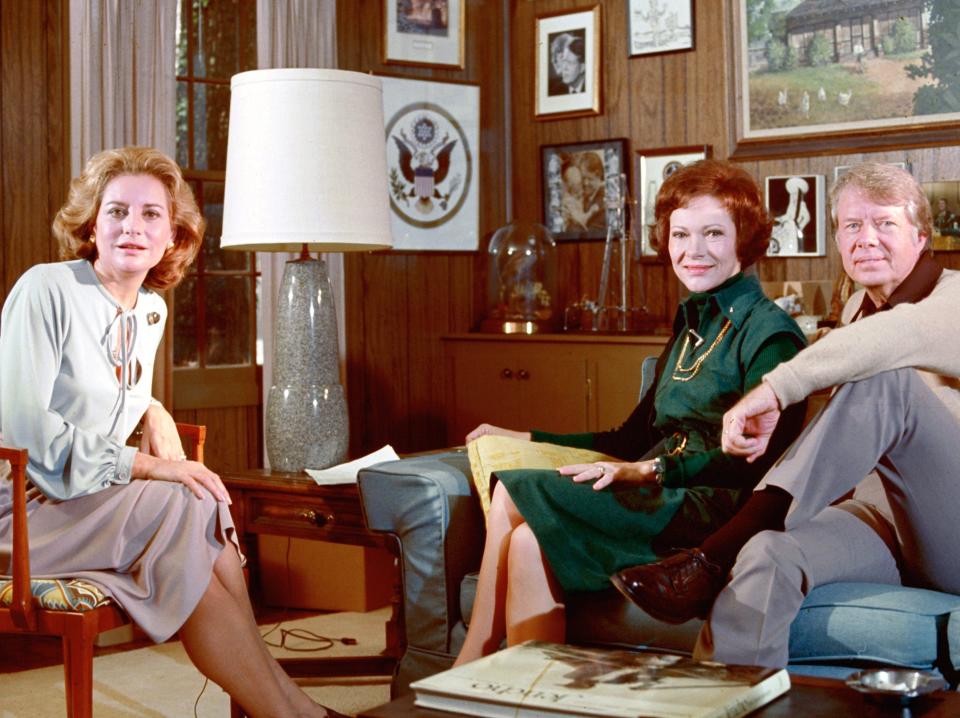
"I pray that I won't disappoint the American people," President Carter told Walters in the December 1976 interview.
Jimmy Carter was sworn in as the 39th president of the United States on January 20, 1977.
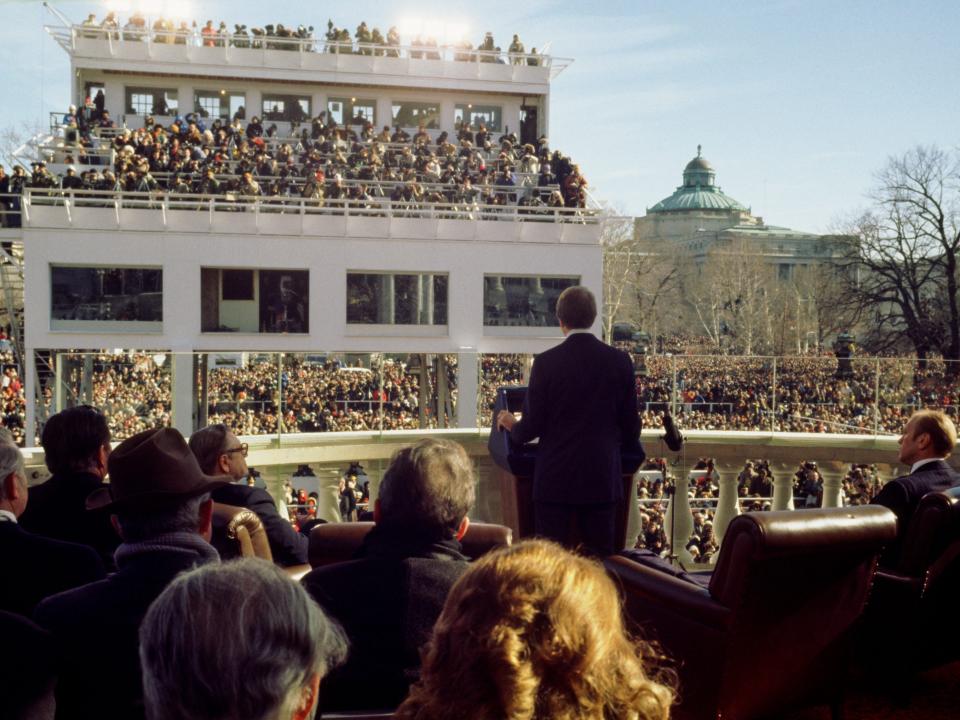
"This inauguration ceremony marks a new beginning, a new dedication within our government, and a new spirit among us all. A President may sense and proclaim that new spirit, but only a people can provide it," Carter said in his inaugural address.
"You have given me a great responsibility — to stay close to you, to be worthy of you, and to exemplify what you are. Let us create together a new national spirit of unity and trust. Your strength can compensate for my weakness, and your wisdom can help to minimize my mistakes," he continued.
"Let us learn together and laugh together and work together and pray together, confident that in the end, we will triumph together in the right. The American dream endures. We must once again have full faith in our country — and in one another. I believe America can be better. We can be even stronger than before."
Jimmy and Rosalynn Carter danced to a live band at the Inaugural Ball in 1977.
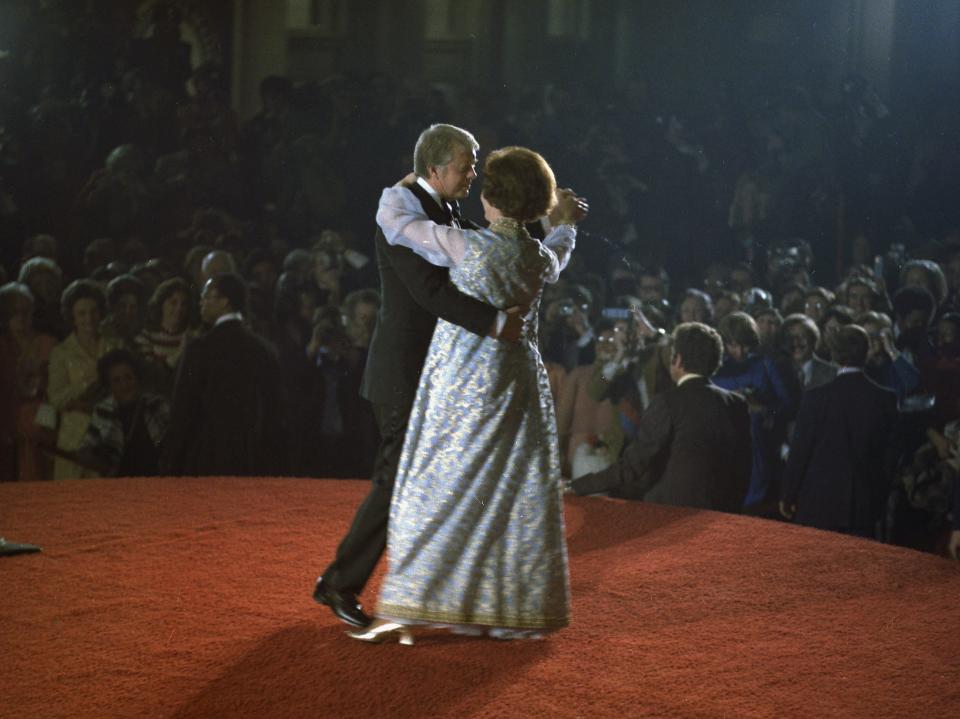
At the inauguration ceremony, Linda Ronstadt performed a cover of Willie Nelson's "Crazy," and Aretha Franklin performed "God Bless America."
The national anthem was performed by Cantor Isaac Goodfriend of Atlanta, a Holocaust survivor.
President Carter met with world leaders, including Queen Elizabeth II, during his term.
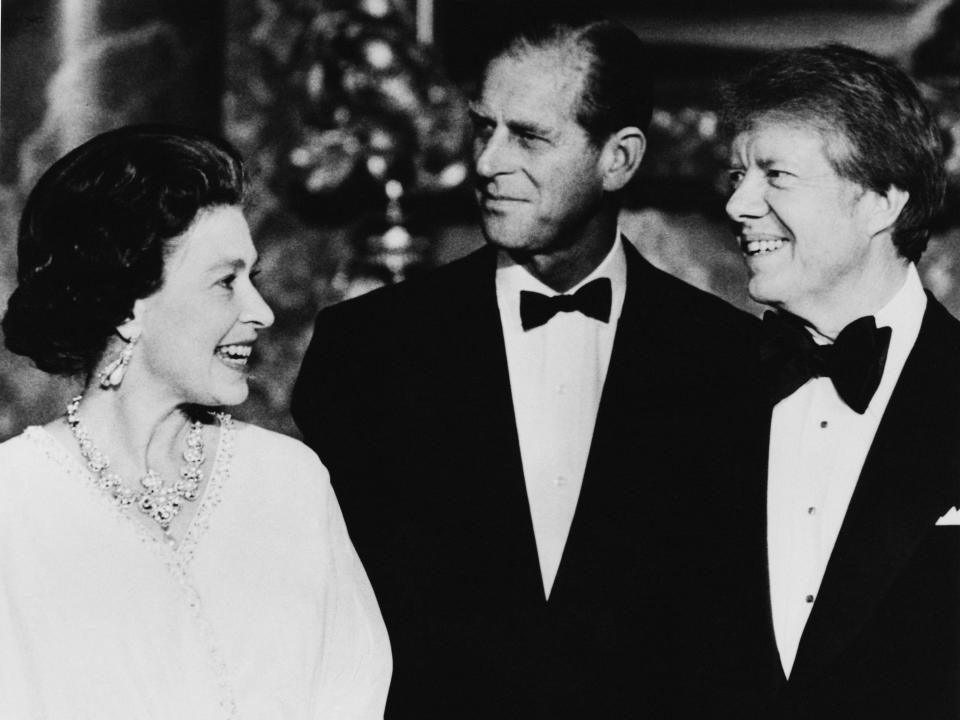
Carter famously broke royal protocol when he kissed the Queen Mother on the lips during his visit in 1977.
"I took a sharp step backwards – not quite far enough," the Queen Mother is said to have remarked after the encounter, according to Vogue.
After the passing of Queen Elizabeth on September 8, 2022, Carter called her a "remarkable leader."
"Rosalynn and I extend our condolences to the family of Her Majesty Queen Elizabeth II and the citizens of the United Kingdom," he wrote in a statement. "Her dignity, graciousness, and sense of duty have been an inspiration, and we join the millions around the world in mourning a remarkable leader."
Throughout his presidency, Carter championed human rights and attempted to combat the country's energy shortage and economic instability.
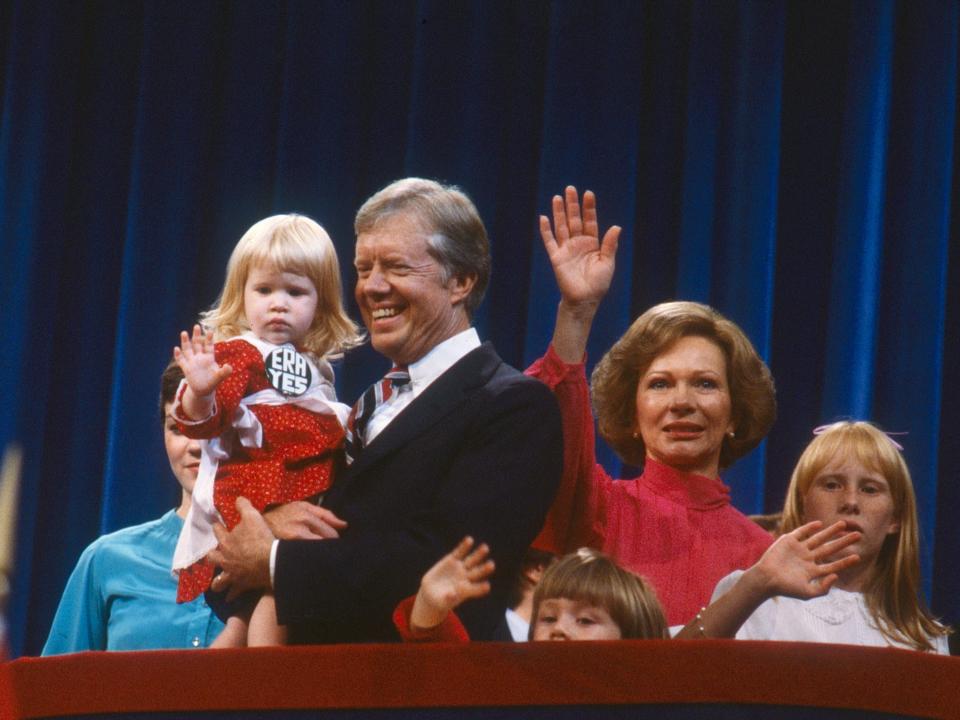
During his time as president, Carter created the Department of Education and the Department of Energy. According to the White House, he also appointed record numbers of women, African Americans, and Hispanics to federal positions.
Carter expanded the national park system to include the protection of 103 million acres of Alaskan lands.
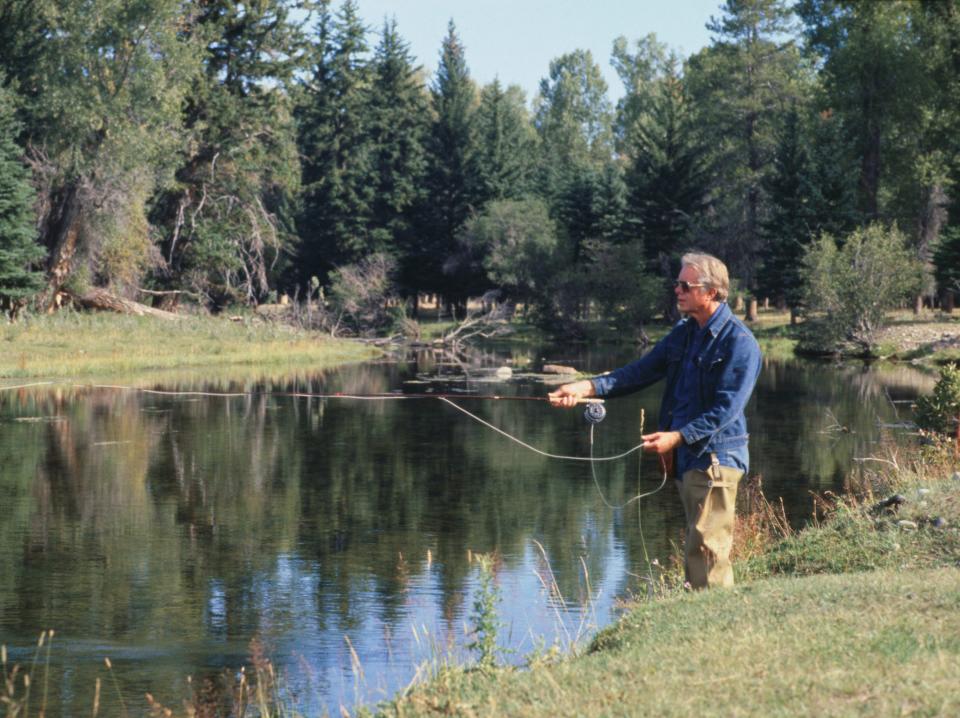
Carter was also the first president to install solar panels on the roof of the White House, though they were later removed by his successor, Ronald Reagan.
In addition to his work in the environment, Carter also established diplomatic relations with China and helped negotiate peace between Egyptian and Israeli leaders at Camp David in 1978, a peace agreement between the two countries that came to be known as the Camp David Accords.
However, inflation and interest rates were at near-record highs, and his handling of the Iran Hostage Crisis saw his popularity plunge.
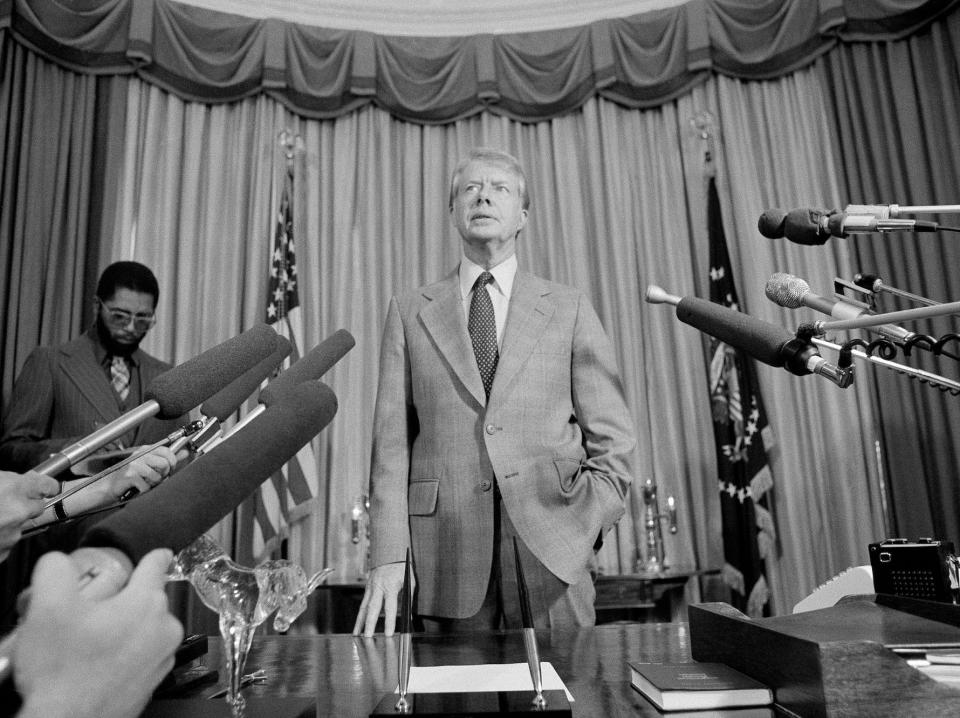
Carter claimed an increase of nearly 8 million jobs during his term and a decrease in the budget deficit. However, despite his gains, Carter's leadership came under scrutiny as Americans continued to struggle with high inflation and unemployment rates.
The Iran Hostage Crisis also marred his presidency. On November 4, 1979, Iranian militants stormed the United States Embassy in Tehran and took 66 Americans captive.
Thirteen of the captives were released on November 19 and 20, 1979, one was released on July 11, 1980, and the remaining 52 were released on January 20, 1981, over a year after they were initially captured. Eight American servicemen and one Iranian civilian were killed during a failed secret mission, spearheaded by Carter in April 1980, to rescue the hostages.
"As our team was withdrawing, after my order to do so, two of our American aircraft collided on the ground following a refueling operation in a remote desert location in Iran," Carter said in a statement at the time.
"There was no fighting; there was no combat. But to my deep regret, eight of the crewmen of the two aircraft which collided were killed, and several other Americans were hurt in the accident," Carter continued. "Our people were immediately airlifted from Iran. Those who were injured have gotten medical treatment, and all of them are expected to recover."
All of the hostages were eventually returned safely home, but many criticized Carter's lack of military retaliation after the incident, the failed 1980 mission, and the resulting loss of life. Secretary of State Cyrus Vance, who had opposed the mission, resigned in protest after the incident.
Carter left office in 1981 after a landslide defeat by Ronald Reagan in November 1980.
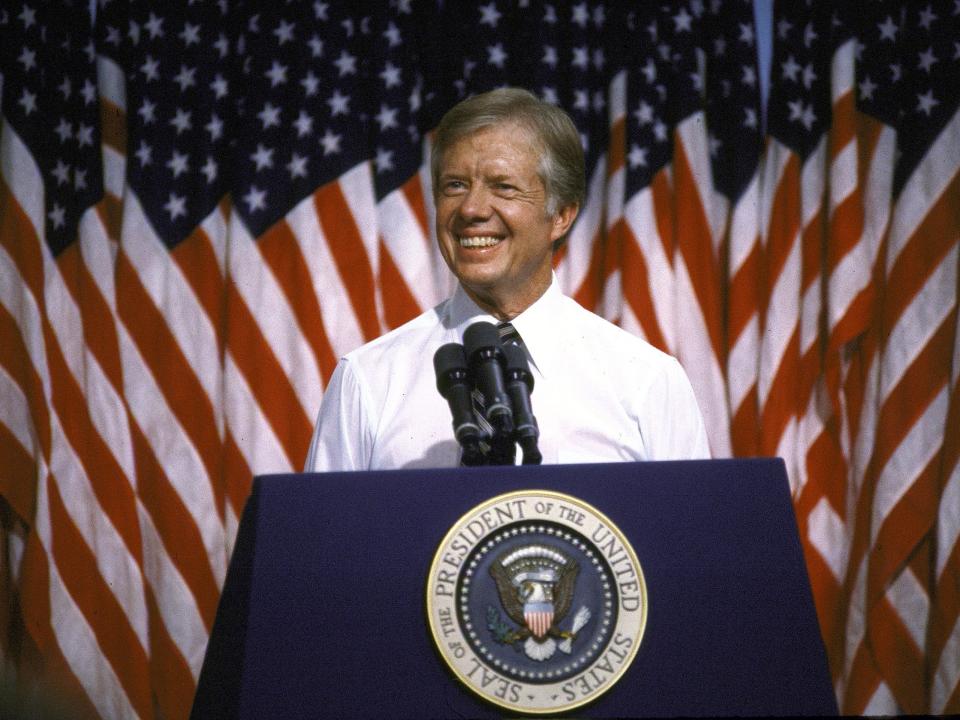
"I promised you four years ago that I would never lie to you. So, I can't stand here tonight and say it doesn't hurt," Carter said in his concession speech on November 4, 1980.
"I've not achieved all I set out to do; perhaps no one ever does. But we have faced the tough issues. We've stood for and we've fought for and we have achieved some very important goals for our country," he continued.
"These efforts will not end with this administration. The effort must go on. Nor will the progress that we have made be lost when we leave office. The great principles that have guided this Nation since its very founding will continue to guide America through the challenges of the future."
After he left office, Carter continued to spread his ideals of education and peace.
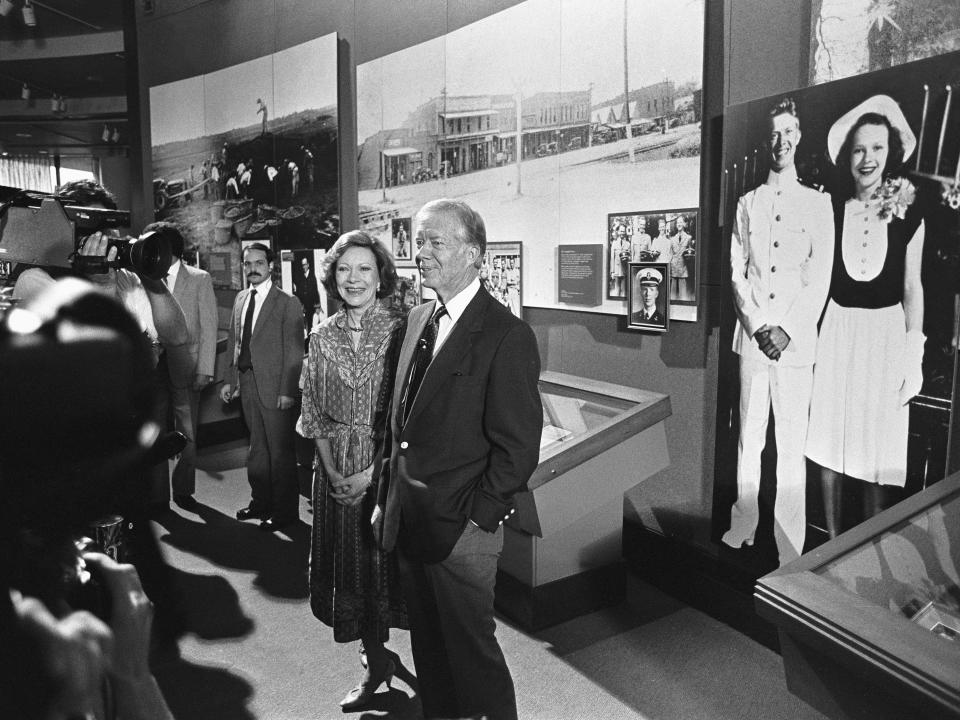
Carter founded his nongovernmental, non-profit organization, the Carter Center, in Atlanta in 1982, with the goal to advance human rights and alleviate suffering. It has promoted conflict resolution, supervised democratic elections abroad, and worked to combat diseases worldwide, including the near eradication of a tropical disease called Guinea worm.
It is adjacent to The Jimmy Carter Presidential Library and Museum, which opened on October 1, 1986.
In his later years, Carter proved he was still devoted to his family and community.
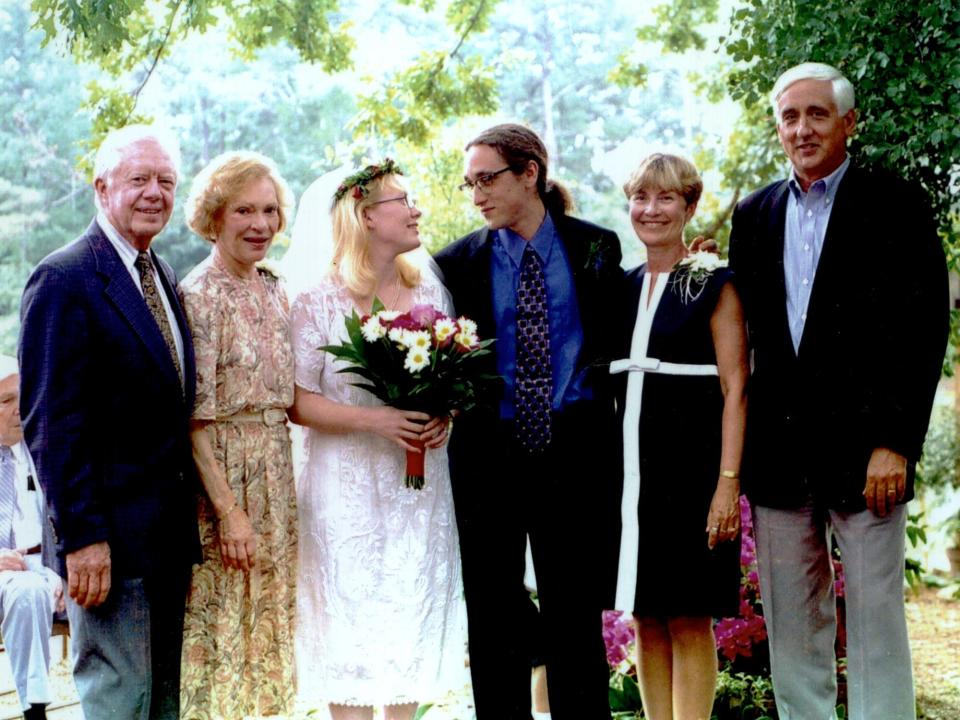
Following his presidency, the Carters returned to their ranch-style home in Plains, Georgia. The house costs less than the armored Secret Service cars that follow him around, the Washington Post reported in 2018.
Pictured, Jimmy Carter attended the wedding of his youngest child, Amy Carter, in 1996. The wedding, held at her family's Pond House estate in Plains, Georgia, was attended by 140 guests.
He also became the presidential face of Habitat for Humanity, a charity organization he has worked with for more than 35 years.
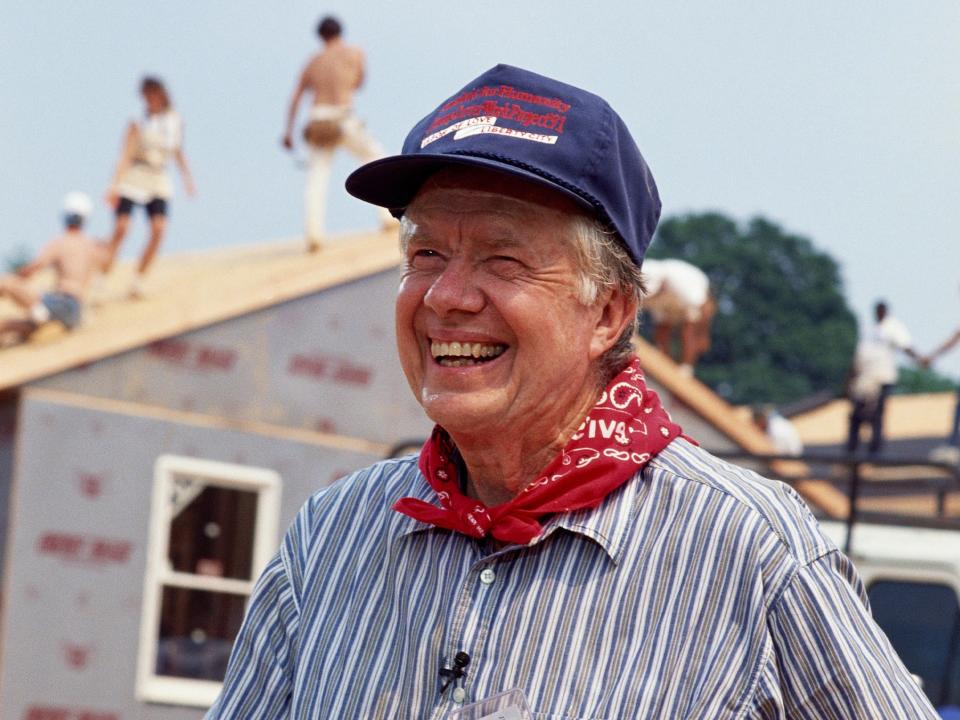
Through their joint work with Habitat for Humanity as part of the Jimmy & Rosalynn Carter Work Project, the former president and first lady have worked alongside 104,000 volunteers and have built, renovated, and repaired 4, 390 homes in 14 countries.
"Habitat provides a simple but powerful avenue for people of different backgrounds to come together to achieve those most meaningful things in life. A decent home, yes, but also a genuine bond with our fellow human beings. A bond that comes with the building up of walls and the breaking down of barriers," Carter said.
For his humanitarian efforts, in 2002, Carter became the third American president to receive the Nobel Peace Prize.
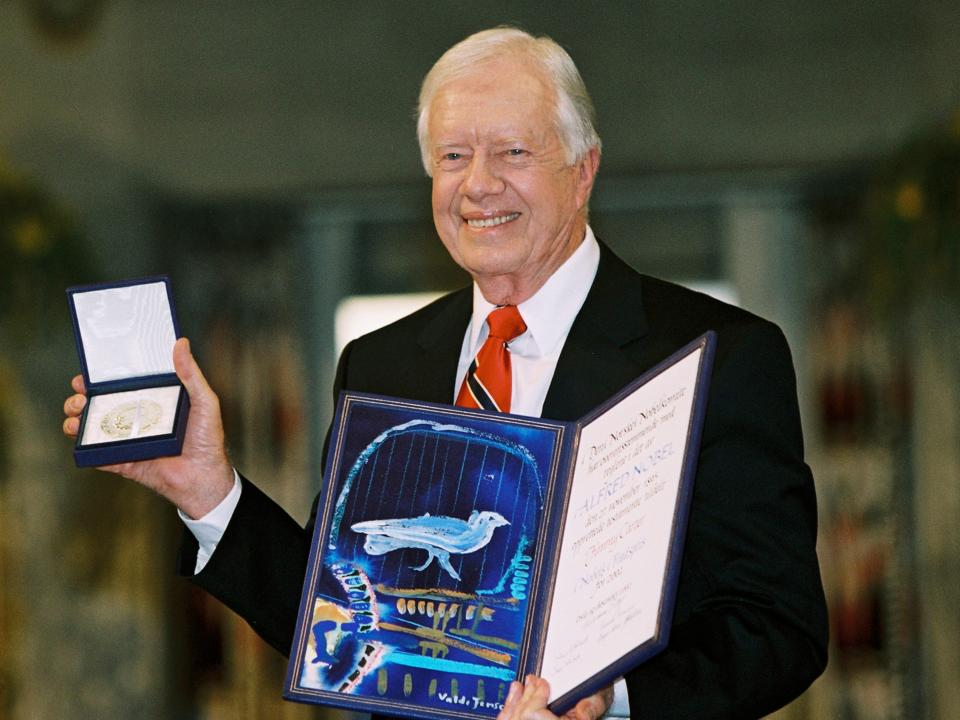
Carter was awarded the prestigious prize for "his decades of untiring effort to find peaceful solutions to international conflicts."
"God gives us a capacity for choice. We can choose to alleviate suffering. we can choose to work together for peace. We can make these changes and we must," Carter said in his acceptance speech.
Jimmy and Carter Rosalynn attended the funeral of former President George H.W. Bush in 2018.
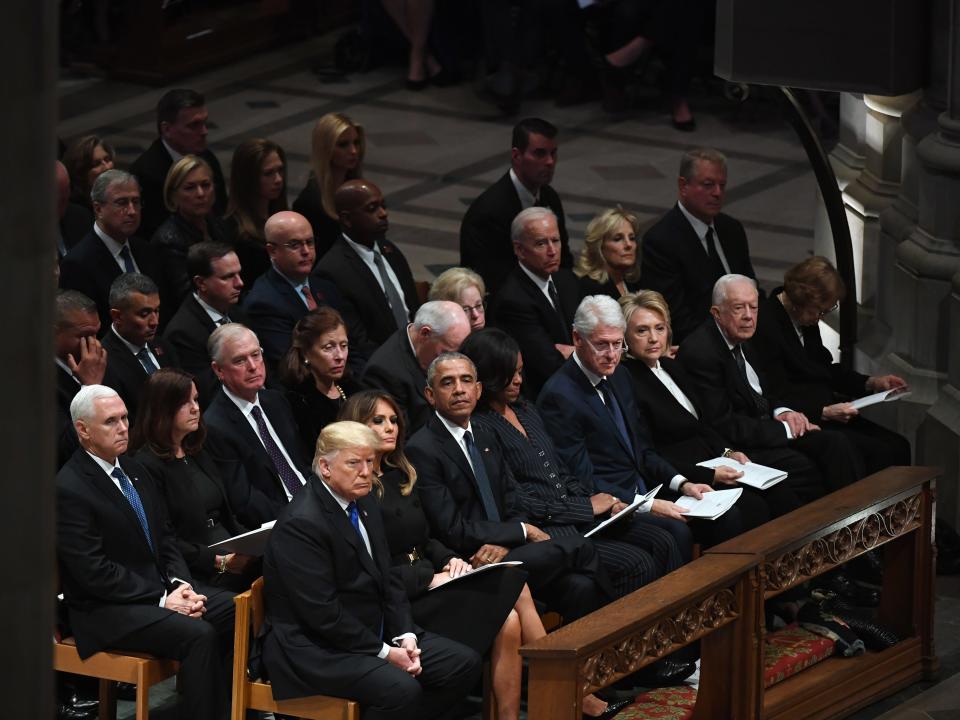
They were seated alongside then-President Donald Trump, as well as former presidents Barack Obama and Bill Clinton.
"Rosalynn and I are deeply saddened by the death of former President George H.W. Bush," Carter wrote in a statement following Bush's death on November 30, 2018. "His administration was marked by grace, civility, and social conscience."
At age 98, Carter is the oldest living president as well as the nation's longest-lived president.
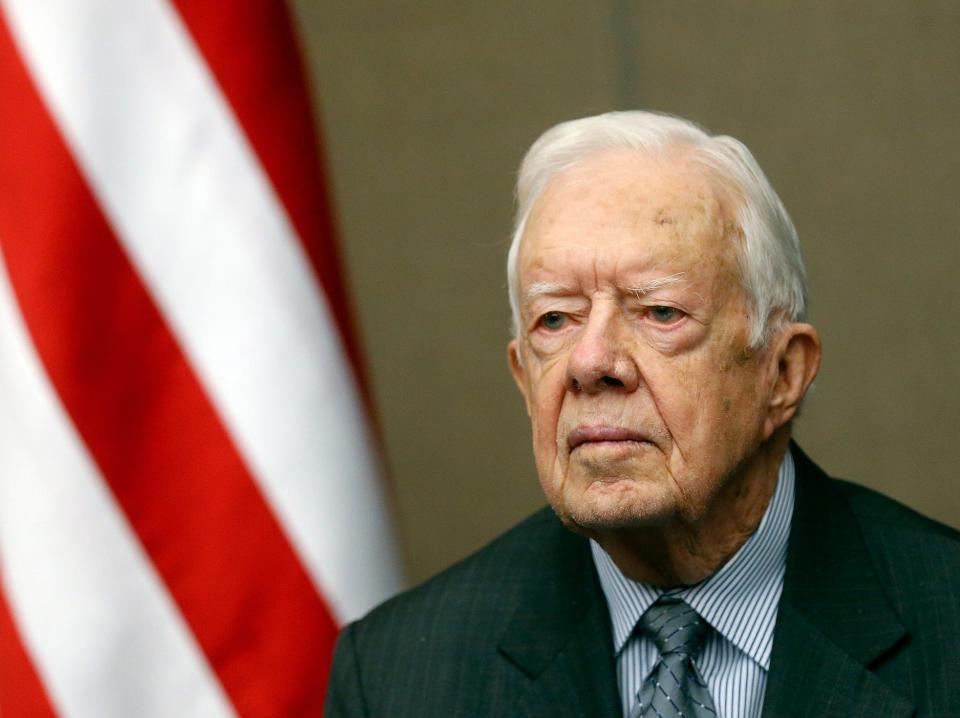
In 2015, Carter was diagnosed with melanoma, which later spread to four different parts of his brain. He received experimental treatment and went into remission, becoming cancer-free just four months later.
At a church service in late 2019, the then-95-year-old said that when he learned he had cancer at 90 years old, he assumed he was "going to die very quickly."
"I obviously prayed about it. I didn't ask God to let me live, but I asked God to give me a proper attitude toward death. And I found that I was absolutely and completely at ease with death," Carter said in 2019, according to CNN.
On February 18, 2023, the Carter Center released a statement saying the 98-year-old had chosen to stop receiving medical intervention and receive hospice care at home after "a series of short hospital stays."
Read the original article on Insider


